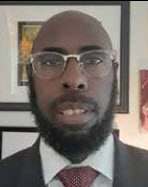 By: Eric Betts
By: Eric Betts
One of the great strengths of a leader is the ability to let their work speak for them and celebrate the good work and performance of others. Too many leaders today are addicted to being in the spotlight rather than highlighting the success of their team members. Great leaders do not set out to be famous, but to bring to the forefront the cause that they seek to champion. Perry Holly, who is a leadership coach for John Maxwell’s leadership group, refers to the concept of soloist vs. conductor. There is room for solo acts in the community, but they too are largely the product of their community. However, solo acts are not best for organizations that seek to be productive change agents within their community. Leaders who have a soloist mindset often center themselves in the organization, while viewing others as merely backup singers to complement their talents.
Holly’s illustration of moving from soloist to conductor is brilliant. The conductor spends most of the time with his back to the crowd, while showcasing those who are playing their instruments. The orchestra members are facing the audience, and are putting their gifts on display. As this occurs, it is the conductor that is helping them harmonize the myriad instruments to create a beautiful sound. The conductor’s face is not seen until the end, when turned to face the audience to receive applause. I have seen many conductors point toward the members of the orchestra and encourage applause. What great leaders understand is how to move from being a soloist to a conductor.
A soloist moving to conductor needs to develop a mindset for wanting to see others shine more than themselves. This is a giant leap if one is always shining bright as a soloist, to move from the spotlight and allow the orchestra to be heard. Even within the orchestra, there are moments when certain instruments are louder and others are more complementary. Holly also quotes Leonard Bernstein who said, “The most difficult instrument to play in the orchestra is second fiddle.” He adds that great leaders with a conductor’s mindset help everyone and desire that everyone in the orchestra succeeds.
Maxwell expands on this concept when he says that humility is a rare trait among leaders. Leaders who possess humility, according to Maxwell, are not concerned with “showing off” their knowledge, strengths, and abilities. Such leaders are never energized by being in the spotlight but in watching others around them grow, succeed, and advance. When it comes to the spotlight, they find their greatest joy in spotlighting the success and achievements of those in whom they have invested. Insecure leaders make great mistakes when they view the success of their team members as taking attention away from themselves. Successful team members are never a threat to the leadership of the organization, but a testimony of the great leadership supporting them.
Believe it or not, leaders of organizations are always going to be in the spotlight whether they crave to be there or not. Grabbing the spotlight is futile. Successful leaders know that they are always being watched and that they will be criticized in rooms where they are not present. Concerns about others being in the spotlight is unnecessary and oftentimes counterproductive. This represents a soloist attitude when the organization and community is in need of an orchestra.
Decorated combat veteran and West Point graduate Dave Anderson, who co-authored Becoming a Leader of Character, says that great leaders know how to give credit to others and accept blame. He adds that great leaders do not put energy into standing out but automatically stand out due to their humility and generosity. Helping others shine and display their gifts is what drives their progress within their industry. This is why they are willing to share credit and bestow compliments on the team members around them. They rarely speak about themselves, but enthusiastically bring attention to those around them. Spotlighting others is not for the purpose of feeding egos, but to illustrate to the larger community the values of the organization, the changes being made, and the needs being met by the team.
By: Eric Betts
Assistant Director, Curtis Coleman Center for Religion Leadership and Culture at Athens State University






